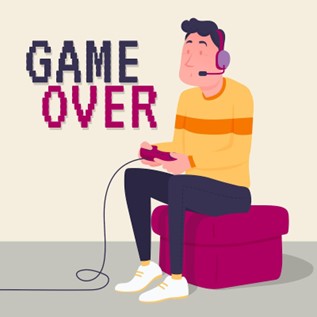
Image by Freepik
Failing Forward: What gaming teaches us about social entrepreneurship
Failing has many negative connotations, meaning we try to avoid it in our private lives and careers. However, in video games, we tend to fail regularly in order to reach the next level. Every time we do not succeed, we are required to try a new strategy to improve the outcome, resulting in a constant learning process. What if we did not limit this approach to gaming but also applied it to social entrepreneurship?
Embracing Failure in Gaming
The primary reason why failing in games is useful is because it is an effective way to improve your skills. Some games are so difficult that it is extremely likely you will initially fail before you get the chance to improve and succeed. Whether we think of Angry Birds, in which we repeat a level to make sure we get the stance of the catapult just right, or Prince of Persia, in which you can die or run out of time, resulting in having to repeat the level. You will get the best results in these games once you put on your creative thinking cap and focus on different approaches. The luck with games is that they tend to give you feedback on how to improve. The next time you attempt the same level, you will be able to adapt your strategy. And then, once you reach the finish line, the satisfaction of working for your goal and achieving it is higher than it would have been if you reached it the first time around. Not only have you put in the work, but you have also acquired a skill you can use in future attempts. On top of that, no harm was done when you initially failed, and you can continue to the next level.
Failing in the Social Entrepreneurial Journey
In social entrepreneurship, like gaming, failing is part of the deal. No social cause has a clear-cut solution; it will require consideration from various perspectives. Experimenting with multiple strategies is needed while also often being dependent on limited resources, meaning that creative thinking is also required. Social entrepreneurship is an iterative process focusing on adjusting, improving and retrying. In games, we do not consider failing the endpoint, so why would we consider it the endpoint in an entrepreneurial undertaking? Most start-ups are not immediately successful in their initial ideas and attempts. Once the concept is all figured out and the target audience is interested, it might turn out that the method is not as effective as originally hoped. To fix this final piece in the puzzle, an entrepreneur will have to go back to point A again and reconsider their original approach. We should not let these setbacks define us, but instead, we should apply the same resilience we apply when Bowser sends us back to level 1 in Super Mario for the fifth time.
The Silver Lining of Failure
At the end of the day, combining our capabilities from gaming with our dreams as social entrepreneurs creates a powerful mix. We learn to apply the logic that experimentation is not to be feared. It is completely fine to not succeed on the first try as long as you tell yourself to get back on the saddle again and give it another shot. Giving it another shot is also simple once we apply gamers’ logic, as this means we just need to think creatively. By thinking like a gamer, we recognise that using the method that we are most familiar with on every occasion, might actually be the reason why we got stuck in the first place. We become problem solvers who analyse what they do wrong and can provide themselves with feedback. In games, we might run out of time and lose the level. In entrepreneurship, our application might get rejected, and we have to go back to the drawing board. Neither of these situations require you to surrender; all you need to do is use the failure as fuel. At the end of the day, occasionally failing is inevitable. The only thing we can control is our own response to failure: we can go back to level one and grow, or we can turn off our screens. It’s up to us.
